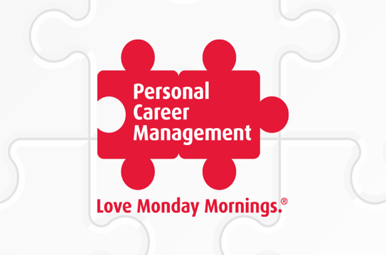How to successfully manage your career and tackle the job market
For ages you may have felt you didn’t have a choice but to slog away where you are, doing your best…
Article by:Corinne Mills



For ages you may have felt you didn’t have a choice but to slog away where you are, doing your best to dodge the redundancy rounds, figuring a pay freeze is better than no money at all, and smiling weakly when your boss plops more workload into your overflowing in-tray. Well maybe – just maybe, 2018 is the year when this can start to change.
So whether you have already noticed the upturn in the job market or not, rather than staying in that oh-so last year mindset where survival was the aim and the strategy may have been simply to grit your teeth and bear it, now is the time to start thinking about how you might take advantage of your potentially rejuvenated career prospects.
Here are some tips to help:
Internal opportunities
If your organisation seems to be recruiting again and making growth plans, then this is a great time to talk to your manager or other decision-makers in the organisation about possible internal opportunities or career development. It’s usually cheaper and easier for them to develop you into a new role rather than recruit someone from outside and it sends an important message to others in the organisation that you don’t have to leave to get career progression.
Don’t expect them to be psychic – you usually have to spell out for them explicitly what you can do and what you are interested in. Try to do this proactively rather than just waiting for a suitable internal job advert to arise. You want to influence their thinking at the early stages of the recruitment process or even better, make it unnecessary for them to place an advert at all.
Air your concerns
If there are things you are seriously unhappy about at work then you should try and raise these, whether it is your pay, an unreasonable workload or a need for more flexible working. The best way to do this is by presenting the subject as something you would like their advice on e.g. “Can I ask for your thoughts on …..” or “what do you think I need to do to ……”. This makes it less confrontational and more of a joint problem-solving approach. Practice out loud what you are going to say beforehand so your messages are clear and delivered in as calm and objective way as possible. Never threaten to leave as this can backfire badly. If they don’t or can’t give you what you want then keep your counsel, thank them for listening and start job-hunting. You’re outta there!
The view from HR
Employers tend to try and pay the least they can in order to attract and retain the staff they want. In the recession, pay freezes may have been necessary for the organisation to continue but it was also possible largely because staff felt they didn’t have much choice but to accept it. Because now we are seeing a more active job market this has brought some of that choice back to employees. Employers should be paying attention to their staff if they don’t want to see them heading for the door.
You can expect pay and benefits and internal career development to be some of the key carrots that organisations will start offering to keep their “talent” happy. After all it’s easier to bung them some extra money and a slightly grander sounding job title, than it is to spend thousands to recruit and train someone new. Companies will also be looking at how they can enhance “staff engagement” as the more emotionally aligned the individual feels in their job, the higher their performance and loyalty is likely to be.
So if you suspect that your organisation would be lost without you, then it’s time to have a conversation about your pay, benefits and career progression, especially if others have started leaving in the organisation.
Market speed
When you’ve been working in the same job for a while, your market edge might have become blunted. Research the jobs that interest you to find out what employers want, whether you can supply all they need and if you need to close any gaps. You can bring yourself up to speed through refreshing your skills, attending professional events, reading trade journals and joining social media forums like groups on LinkedIn. You must be able to talk knowledgeably about wider industry trends and issues if you want to convey your transferability to other organisations.
Start the PR Campaign
If you’ve not job-hunted for a couple of years, then you may be in for a shock when you see how the recruitment job market has changed. Job websites, digital applications, social media, video interviews are now standard recruitment territory. Yes, you will still need to brush up your CV, but it will also need to be technology friendly given that your CV is likely to be read by recruitment software rather than human eyes, at least in the first instance. Make sure that you keep your CV in fairly plain format, that you use keywords within the CV to capture those search engine bots, as well as remembering the basic principle that you need to convince them you have the particular skills and experience the employer wants, rather than just telling them everything you have ever done.
It’s also time to get out and about. Reactivate those business connections you may have let lapse because you decided that it was safer to stay where you are. Make 2018 the year when you rediscover lunch-time and use it to go out and actually talk to people.
Help
There are many great articles on our website as well as a range of career tips. You can buy a book on most career subjects or look online for free resources. If you want advice that is more specific to you, then consider working with a career coaching company like Personal Career Management as they can be a great help especially if you are unsure about what you want next or need some guidance on marketing yourself.
You may also be interested in the following articles:
Benefits of working with a career coach
Free downloadable Career Action Plan
How do I find out more?
Call us on 0345 686 0745 or fill in our contact form and one of our team will be happy to contact you.
We offer a free, no-obligation consultation to discuss your situation and to find out more detail about how our programmes work.
Or Call Us on 0345 686 0745

Related Articles



